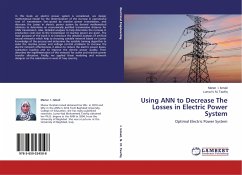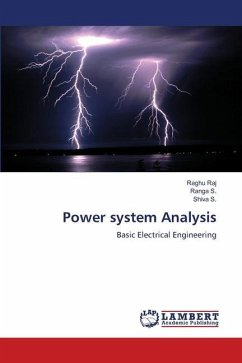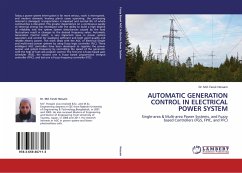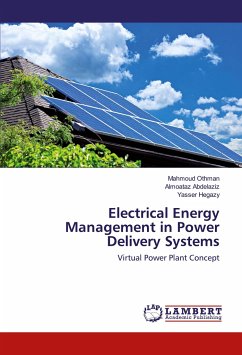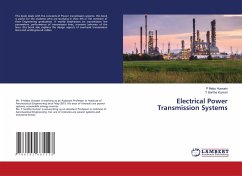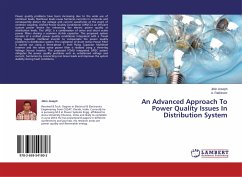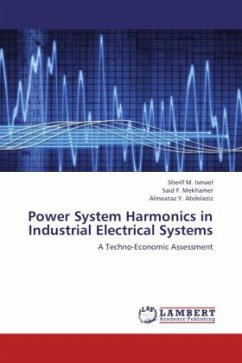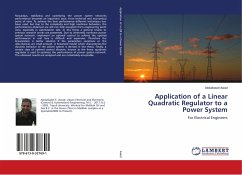
Application of a Linear Quadratic Regulator to a Power System
For Electrical Engineers
Versandkostenfrei!
Versandfertig in 6-10 Tagen
36,99 €
inkl. MwSt.

PAYBACK Punkte
18 °P sammeln!
Nowadays, stabilizing and optimizing the power system networks performance becomes an important issue, from technical and economical point of view. To achieve the best performance different techniques has been used, but due to the complexity and high nonlinear behaviors, the performances obtained are still not fully accepted from engineering point view, especially in optimization side. In this thesis a general review to previous research works are presented. Due to inherently nonlinear power system network, implement an optimal control to achieve the optimal performance in real time is difficu...
Nowadays, stabilizing and optimizing the power system networks performance becomes an important issue, from technical and economical point of view. To achieve the best performance different techniques has been used, but due to the complexity and high nonlinear behaviors, the performances obtained are still not fully accepted from engineering point view, especially in optimization side. In this thesis a general review to previous research works are presented. Due to inherently nonlinear power system network, implement an optimal control to achieve the optimal performance in real time is difficult and expensive. Therefore the linearization is better solution if the parameters variations or the disturbances are small enough. A linearized model which characterises the dynamic behavior of the power system is derived in this thesis. Finally, a certain class of optimal control theories, known as the linear quadratic regulator is used to optimize the performance of power system network. The obtained results are analyzed and are remarkably acceptable.




